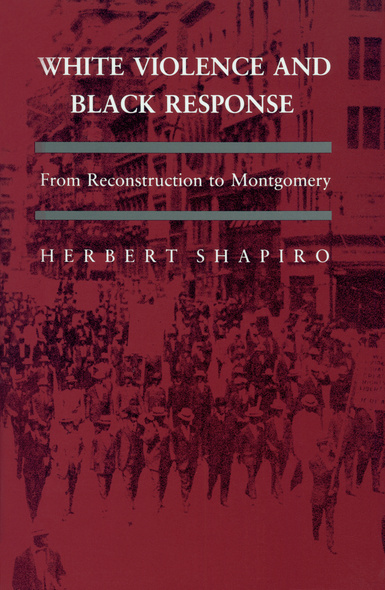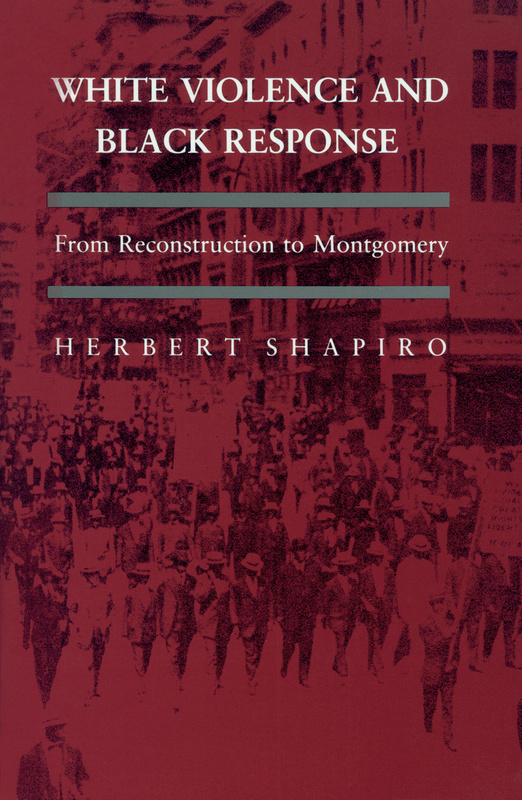White Violence and Black Response
From Reconstruction to Montgomery
University of Massachusetts Press
We are taught that America is a society based on respect for the law and orderly procedures. That the Constitution stands as a safeguard of individual freedom, and the courts and the police are supposedly established to enforce the law. When a controversial issue arises in the American fabric, it is to be resolved not in the streets but through the democratic processes of elections. Yet, for blacks these liberal values have been turned into their opposites. The courts have most often stood silent in the face of racist violence or have turned their wrath against the victims, not the perpetrators; the police have protected the mob rather than the mobbed and have often either aided the lynchers or displayed amazing inability to identify them. Where race is concerned, legislative or judicial action to deal with controversial issues has often come late and been partial in nature, while white violence has continued to terrorize black Americans without hindrance.
In White Violence and Black Response: From Reconstruction to Montgomery, Herbert Shapiro explores the depths of violence generated by white racism and the irony of the American association with violence as a behavior of black people. Citing the nation's political leadership, educational institutions, and news media as institutions that fail to educate Americans about the oppressive social conditions that have root in these criminal acts, Shapiro is able to expose the ways in which white supremacy operates within American institutions and the responses by black people in this powerful read.
In White Violence and Black Response: From Reconstruction to Montgomery, Herbert Shapiro explores the depths of violence generated by white racism and the irony of the American association with violence as a behavior of black people. Citing the nation's political leadership, educational institutions, and news media as institutions that fail to educate Americans about the oppressive social conditions that have root in these criminal acts, Shapiro is able to expose the ways in which white supremacy operates within American institutions and the responses by black people in this powerful read.
An outstanding contribution to Afro-American historiography.'—Philip S. Foner
'A well-documented and judiciously balanced scholarly treatise.'—Race and Class
'This book is a splendid contribution to American history, and it deserves praise for its comprehensive and sensitive treatment of a topic that many would like to avoid. By taking the reader through the maelstrom and horrors of the black experience since the Civil War, the book provides a greater understanding of the pathological nature of racism and the profound contradictions between our national ideals and the realities of American society. It also helps dispel the myth that violence has been merely tangential to our national experience.'—American Historical Review
'A book well worth reading and one destined for the reference shelves of historians interested in black-white relations since the Civil War.'—Journal of American History
'Scholarly and thoughtful, . . . this work stands as the most complete overview to date of this crucial dimension of race relations.'—Journal of Southern History
Herbert Shapiro teaches history at the University of Cincinnati.





